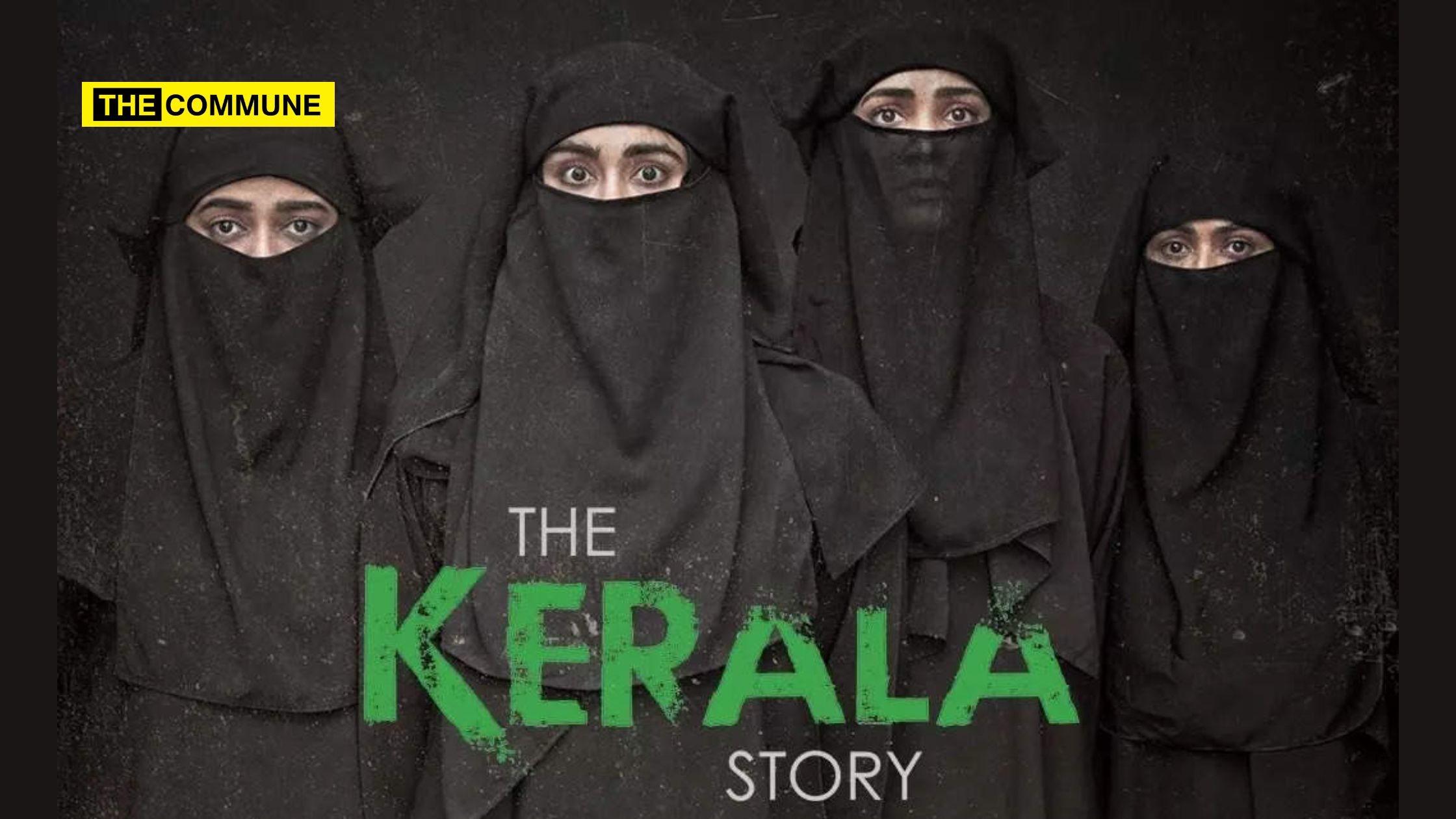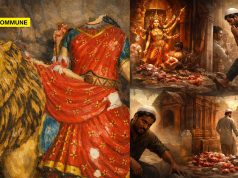
As a society there are several burning issues which are creeping under the surface. Many of these issues are unaddressed ignoring victims of these ordeals.
During the time when certain topics were ‘cancelled’ outrightly by the ‘Left-Liberal’ intelligentsia of Lutyens Delhi, one could never muster the courage to put these topics in to public debates whether in the name of creative freedom or realistic concerns.
The appeasement politics practiced until not so long ago tend to keep a lid on these issue in the name of minority protection. But it seems that wind is blowing in a different direction now.
Issues of great concerns for the majority community are being discussed with courage unlike before, the change in attitude of acknowledging plight of the majority community are now being reflected in the movie industry also.
The Bollywood delivered us ‘Kashmir Files,’ at last mainstreaming the concerns of Kashmiri Hindus with sheer audacity despite protests from the above-mentioned pseudo intelligentsia. In a similar manner now, we have a movie which depicts the reality behind ‘Love Jihad’ and the plight of women involved in the process.
Through eye opening screenplay and heart wrenching scenes, The Kerala Story depicts the true intentions of Islamic terrorists who weaponizes Love to lure in women belonging to Hinduism or other religions. It is true that the filmmakers employed their creative freedom and it is evident from many scenes which does not sit well with the plot, the movie was successful in delivering its core message in an unabashed manner, which is on how the extremists in Muslim world use even love as a weapon for the purpose of propagating their religion and on how victims are created in the wake of greedy exploitation for proselytization.
The Plot
The plot revolves around four teenage girls who enrol in a nursing programme at a prestigious college in North Kerala. Adah Sharma (Shalini), the heroine, is from a traditional Hindu family; another (Geetanjali) is from a Hindu Communist family; the third (Nimah) is from a Christian family; and the fourth (Asifa) is a Hijabi Muslim. Even from the beginning the film sets the atmosphere clear, the campus in the which the protagonist enters resembles eerie similarities to the campus of JNU, New Delhi during the CAA protests. The atheistic tendencies among non-Muslim communities and probability of them falling in to anti-national communist and anarchic behaviours are evident from certain scenes itself. Talking about reading the frames, one could also notice that Hinduism is misrepresented with disregard in form of dialogues or graffities representing the true spirit of conversion mafia.
Asifa is tasked with brainwashing her roommates into converting to Islam, and she employs her young, male “relatives”, community members and elders, and Quran verses to do this. She believes she is performing a religious obligation as prescribed by the Quran, and her conscience never warns her that she is destroying the lives of the other three girls who considered her a friend. Even the young men who assist in the destruction of these innocent girls’ lives feel no sorrow or guilt as they ravage the bodies of the girls, believing that it is permissible, nay, blessed, in the Quran and will provide them straight access into Jannat, the fictitious heaven. That they have already degraded their humanity and conscience by participating in such a heinous agenda. Adah Sharma portrays Shalini alias Fatima’s path from joyful, naive student to ISIS recruit to urgently wishing to escape that life with her young daughter. Siddhi Idnani’s performance as Geetu, who strives bravely to let go of her past until it threatens to destroy the respect her parents have in society, takes the viewer on a roller-coaster ride as well. Yogita Bihani (Nimah) and Sonia Balani (Asifa) have both played their parts well. ISIS took the converted females and their Muslim husbands. The tragic stories of the girls were only brought to light in 2016 when they were captured and subsequently probed in Afghanistan.
The movie also has certain scenes which is gruesome in its depiction. The scenes of repeated rape, exploitation, violence under sharia law sometimes makes one turn their head but one’s stomach will turn only after realizing that these instances really take place in Sharia world. And it becomes even more nerve wracking to know that The Kerala Story is inspired from real events and after knowing the facts behind their ordeal one could not deny the reality behind love jihad.
One of the most discussed cases of love jihad was that of the four girls who were in the 21-member group that joined ISIS in 2016 along with their husbands. The four girls were identified as Sonia Sebastian alias Ayisha, Merrin Jacob alias Mariyam, Nimisha alias Fathima Isa and Raffaela. These four girls were trapped and lured to become Muslims. They left India in 2016 to join the ISKP (Islamic State of Khorasan Province) the Khorasan edition of ISIS in Afghanistan along with a group of 21 men and women from Kerala. The detailed accounts of their testimony are included in a documentary made by StratNews Global. Many scenes which can be criticised as excessive does justice to the story telling, one could only blindly criticise or ignore the narrative in the movie only if one decides to ignore the brutal reality behind the existence of Love Jihad.
Creative Liberty But With Audacity
The Kerala Story has some creative elements in it. Beginning from the depiction of Kerala, the movie does not seem to do justice to the authenticity part of creativity. At many places of the film, one could notice such instances of willful ignorance or products of bad research. It does a bad job in representing all Muslims as radical and imposes preconceived naivety on to the victim. But the film sticks to its core messaging, which is airing the reality behind Love Jihad so that it becomes a topic of mainstream discussion. The Kerala Story may have to change the description from 32,000 to 4 in wake of absence of accurate data but it is only the numbering which is disputed and not the reality.
The Kerala Story is only a tip of the iceberg of suffering of these women whom are being turned in to victims by Islamic radicals for propagation of the religion. The Muslim youth in the movie, despite their gender sets their agenda of converting the women from other religion. The film does justice in this regard as the movie depicts their agenda with sheer audacity. And finally in the credit scene of the film, narration from one of the real victims herself is shown and it makes the audience leave home with a message, a thought to ponder up on even after leaving the theatre, grim reality behind the Love Jihad.
We all know that there are many criticisms surrounding the movie on its depiction of Muslims and their religious agenda, but the real question that should be asked is whether anyone protesting the movie bothered to know about the reality behind Love Jihad? Or why there should be protests if social issues from the Muslim community are depicted on screen? It is interesting to note that Hindu concerns have been constantly brushed aside by the media on their depiction on screen. If Hindu concerns were addressed in earnest, then movies such as Haider or PK should not be allowed to be screened. The comments made by Kerala High Court in this issue is praiseworthy. During the hearing of petition to ban The Kerala Story, Kerala HC had stated that, “There are umpteen number of movies where Hindu sanyasis are depicted as smugglers or rapists. Nothing happens, no one protests. Many such Hindi and Malayalam films are there.” The judiciary took the right step in allowing screening of a movie which exposes the brutal reality behind Love Jihad. We can hope that with the release of this movie the issue of Love Jihad will finally enters the mainstream discussions and measures will be taken to eradicate this social evil once and for all.
Anand Krishna is a Kerala-based lawyer and a columnist.
Click here to subscribe to The Commune on Telegram and get the best stories of the day delivered to you personally




